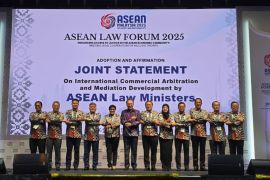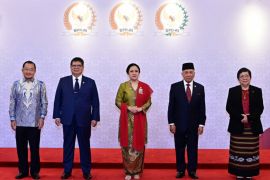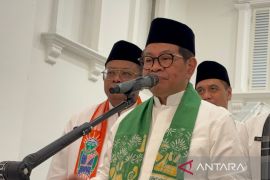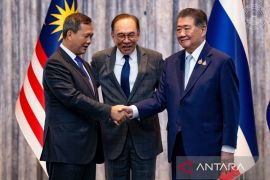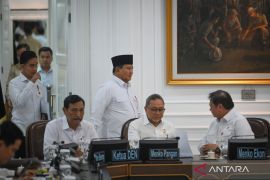"AMRO will serve as an institution which will keep monitoring financial developments particularly those in ASEAN member states and will issue an early warning if any of them needs financial support," he said on the sidelines of an ASEAN Finance Ministers Meeting here.
The plan to form the institute had been agreed upon at a meeting of deputy finance ministers. Hopefully, the institute could take over the role of the International Monetary Fund (IMF) in controlling the financial conditions in 10 ASEAN member states, plus China, Japan and South Korea, he said.
"When any of the countries needs support AMRO will automatically recommend (extra foreign exchange reserves) shortly after receiving a request from the country concerned," he said.
The recommended value of extra foreign exchange reserves would depend on the latest conditions of the country concerned because the characteristics of each country`s economic conditions were different from one another, he said.
"The value depends on each of the countries. For instance, a US$1 billion decline in the amount of foreign exchange reserves will likely have no impact on Indonesia but it will be a big problem for other ASEAN member states which have smaller foreign exchange reserves," he said.
Bambang said AMRO had an initial contribution of US$120 billion as agreed upon in the Chiang Mai Initiative Multilateralization (CMIM) to protect the region against rising global economic risks and challenges.
"Since the fund is initial contribution, it could hopefully increase because so far only central banks of China, Japan, and South Korea as well as Singapore have been playing a role. Contribution from other countries is expected to increase so CMIM will become larger," he said.
(U.S012/HAJM/A014)
Editor: Priyambodo RH
Copyright © ANTARA 2011
